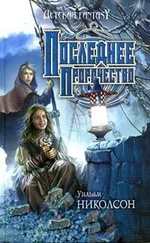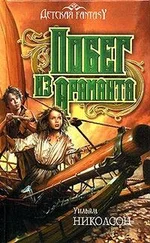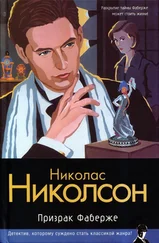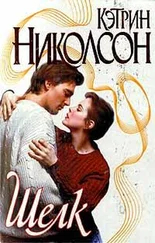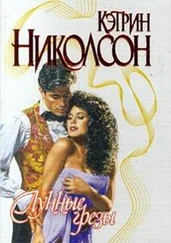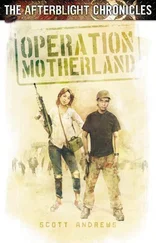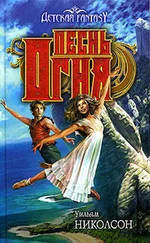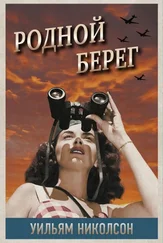‘You all right, Pammy?’
‘More!’ she says. ‘More!’
He fetches the sledge and they climb back up the hill.
‘Don’t do that again, Larry,’ says Kitty, brushing snow off Pamela. ‘You scared me half to death.’
‘No, no!’ cries the child. ‘I want more!’
‘You wild man,’ says Ed to Larry.
Pamela is allowed to go on the sledge again, but this time with her mother, very slowly, and escorted by Ed and Larry.
‘Faster!’ she cries. ‘I want to go faster!’
This time there’s no tumbling off. Descending in a series of hairpin bends they make their way back down to the valley. Once on the road again they walk, and Ed tows the sledge behind him.
Larry walks with Pamela, holding hands.
‘Mummy is married to Daddy,’ says Pamela. ‘So I can be married to you.’
‘All right,’ says Larry.
‘So we can do more fast sledging,’ says Pamela.
‘Of course.’
‘An excellent basis for marriage,’ says Ed from behind them.
That night the temperature drops again, and more snow falls. The next day Larry and Ed take shovels and dig a path from the house to the road, hard labour which takes them the whole morning. A tractor has been down the Newhaven road driving a snowplough, but there are no cars or lorries to be seen.
‘If this goes on we’re going to have to stock up with coal,’ says Ed.
The hours shovelling snow warm them and give them an appetite. They head back down the path they’ve cleared, the shovels shouldered.
‘So how’s Nell?’ says Ed. ‘Is she still on the scene?’
‘In a way,’ says Larry. ‘It’s been a bit up and down lately. I was supposed to be seeing her when I got back today.’
‘This weather’s messed up everyone’s plans.’
‘The annoying thing is she’s not on the phone. I suppose I could always ring the gallery.’
‘I shouldn’t worry. Everything’s in chaos. She’ll understand.’
‘I wish I did,’ says Larry.
‘Oh,’ says Ed with a smile. ‘It’s like that?’
‘Not so long ago I was asking her to marry me. Now I’m not even sure if I’m ever going to see her again.’
‘Why wouldn’t you see her again?’
‘I hardly even know myself,’ says Larry. ‘She’s not like anyone else I’ve ever known. She lives entirely by her own truth. And that’s what she wants me to do.’
‘Whatever that means,’ says Ed.
‘It should be so simple. Say only what you mean. Do only what you want. No games, no pretence, no polite little lies. But what if you don’t know what you want?’
‘You can’t tell people the truth,’ says Ed. ‘Being civilised is all about covering that stuff up.’
‘Do you really think that?’ says Larry.
‘Don’t you?’
‘I suppose I think that if you really love someone, and they really love you, you can tell them everything.’
‘That’s because deep down you believe that people are good.’
‘And you believe people are bad.’
‘Not exactly,’ says Ed. ‘I believe we’re alone.’
He gives a laugh, and punches Larry on the arm.
‘Here you are, my oldest friend, and I’m telling you I’m alone. What an ungrateful dog of a fellow I must be.’
‘You may be right even so,’ says Larry quietly.
‘Your Nell sounds to me like she’s a bit of a handful.’
‘But Ed,’ says Larry, pursuing his own thoughts, ‘you don’t feel alone with Kitty, do you?’
‘Now there’s a question.’
‘Sorry. Forget I said it.’
‘No,’ says Ed. ‘It’s a fair question. She’s my wife, and I love her.’
He thinks it over as they come to a stop in the snowy farmyard.
‘There are moments when I’m with Kitty, when I’m holding her in my arms, or when I’m watching her sleeping, when I go quiet. Very still moments. I don’t feel alone then.’
Larry kicks the snow, making furrows in the virgin whiteness.
‘But they don’t last.’
‘No. They don’t last.’
‘You shouldn’t be away so much, Ed. It’s hard on Kitty. And on Pammy.’
‘I know.’ He speaks humbly, accepting the rebuke. ‘Unlikely as it may seem, I do my best.’
‘Well,’ says Larry, ‘there’ll be no trips to France in this.’
They go into the house, stamping the snow off their boots. Kitty and Pamela are making lunch.
‘Daddy’s back,’ says Kitty. ‘We can eat.’
‘And Larry,’ says Pamela. ‘He’s back too.’
* * *
The early excitement of the snow soon wears off, as the bitter cold grips the land. The electricity cuts out for hours at a time, without warning, plunging the house into a blackout as complete as any in wartime. For three nights running they eat their supper and go to bed by candlelight. Then the water pipes freeze, and it’s no longer possible to wash, or go to the lavatory. They take to using potties, which Ed removes and empties in some secret place onto the hard snow. The wireless news tells them of the crisis that has overtaken the nation. Railway wagons can’t move. Ships can’t bring in supplies. Food rations are cut lower even than the worst years of the war. In early February the government announces there will be five hours of planned electricity cuts a day, three in the morning and two in the afternoon.
When the farmhouse supply of both coal and firewood runs out, Kitty turns for help to Louisa. Ed and Larry plot various ways of moving loads of fuel across the village, but in the end come up with a simpler solution. They move themselves. Edenfield Place is well stocked with coal, and by shutting up two-thirds of the house George reckons they can last a good six weeks. This terrible weather can’t possibly go on to the end of March.
So Ed and Kitty return to the room in Edenfield Place in which they began their married life, and Pamela to her little bed in the adjoining dressing room, and Larry to the guest room down the corridor. Fires are kept burning in the Oak Room and the morning room, while the far larger drawing room and library are left to the winter cold. The butler’s pantry, the domain of Mr Lott the butler, and the kitchen, the domain of his wife, Mrs Lott the cook, are also kept warm. Three of the four great boilers are switched off. Oil lamps stand in readiness for the hours when the electricity cuts out.
Due to the more modern heating system of the house, the water pipes are still running in the family quarters, and three lavatories are usable. Ed’s potty-emptying duties are suspended.
‘I’m rather sorry, really,’ he says. ‘I was looking forward to the day the snow melts, and all round the houses there’d be revealed the waste matter of the mid-twentieth century.’
The hard winter locks them all in the big house on top of one another, and Larry finds no opportunity to talk to Kitty alone. He originally expected to visit for a weekend only, and so has not brought his paints and brushes. Now as his stay enters its third week and there’s no sign of a thaw, he passes much of his time huddled by the Oak Room fire, rereading War and Peace . When he finishes the first volume, Kitty picks it up, and begins to read behind him. This reignites their old conversation about good characters in books, and whether they can ever be attractive. The character in question is Pierre Bezukhov.
‘But he’s so fat,’ says Kitty, ‘and he’s so clumsy, and he’s so naive.’ She’s especially outraged by his marriage to the beautiful but cold Helene. ‘All because of her bosom. It’s ridiculous.’
‘I promise you he gets better,’ says Larry. ‘You’ll learn to love him.’
‘I love Prince André.’
‘Of course you do.’
‘And you love Natasha.’
‘I adore Natasha. From the moment she runs into the grownups’ party and can’t stop laughing. But do you know an odd thing? Tolstoy quite clearly tells us that she’s not specially pretty. But when I imagine her, she’s tremendously attractive.’
Читать дальше

